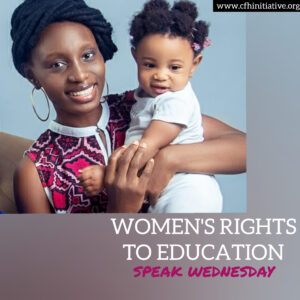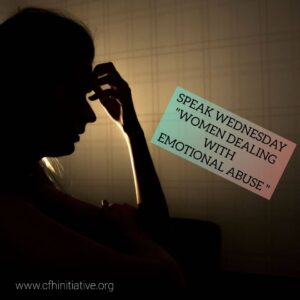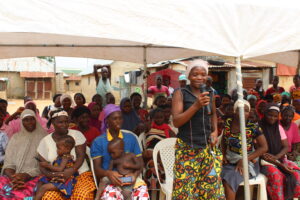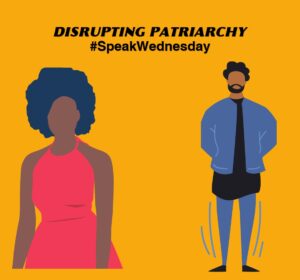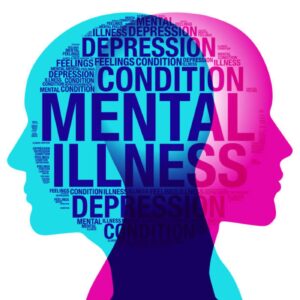SPEAK WEDNESDAY
WOMEN’S CIVIL AND POLITICAL RIGHTS

According to Wikipedia, Civil and political rights are a class of rights that protect individuals’ freedom from infringement by governments, social organizations, and private individuals. They ensure one’s entitlement to participate in the civil and political life of society and the state without discrimination or repression which includes among others freedom from discrimination and the right to privacy, the right to peaceful assembly, free expression, the right to vote, and freedom of religion.
Historically, women have been excluded from political life and decision making processes. Women’s campaigns for participation in the public and political arena date back as far as the 19th centuries and continues today. Despite representing half the global population, women comprise less than 20 percent of the world’s legislators. From discrimination and violence to a lack of support and resources, women face innumerable challenges to participation in the civic and political life of their countries.
Women in Nigeria face many challenges and discriminatory practices under some existing laws and customs. The Nigerian society is patriarchal in nature, this is due to the influence of the various religions and customs in many parts of Nigeria. Women are seen as the ‘weaker sex’ , hence, all forms of discriminatory practices by the state and society (especially by men) are condoned. Political life in Nigeria is based on male norms and values, and men determine the standards for political participation and the rules that govern the electoral process, greatly limiting women’s participation in politics.
Although Women’s political participation has improved, but much still needs to be done. On the 15th day of March 2016, for instance, members of the Nigerian Senate at its plenary session, voted against and consequently, dumped the “Gender Parity and Prohibition of Violence against Women Bill” that aimed to give women equal rights in marriage, education and employment. Under the law, a widow in Nigeria would have automatically become the custodian of her children and husband’s property upon her husband’s death. While a few lawmakers supported the bill, others believed that it violated the African spirit. In the African custom, women are considered the weaker gender, often repressed, seen as a baby making machine and as property. If there was better representation of women in the Senate, there is no doubt that the bill would have passed.
According to certain provisions of the Convention on the Elimination of all Forms of Discrimination against Women (CEDAW), and the protocol to the African Charter on the Rights of Women in Africa and the National Gender Policy, Women have the right to participate in political processes that affect them, their families, and their societies. Countries with increased women’s participation and leadership in civil society and political parties tend to be more inclusive, responsive and democratic. Truth is, when women significantly participate in peace processes, they meaningfully help to expand the scope of agreements and improve the prospects for lasting peace.
Speak Wednesday is an initiative of Centre for Family Health Initiative to stop the cycle of domestic violence by breaking the silence around gender-based violence and gender bias. Join us every Wednesday on all our social media handles for more episodes.

